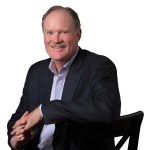The following is an excerpt from a recent article on fasting physiology by Jeffrey Bland, PhD, from our partners at Integrative Medicine, a Clinician’s Journal.
 During the last 2 decades, our understanding of the metabolic and neurobiological effects of the ketogenic diet has increased and this has led to greater and more widespread interest in fasting physiology and the successful application of this state of metabolism. In November 2018, a very important conference took place at the Keck School of Medicine at the University of Southern California (USC): the First International Conference on Fasting, Dietary Restriction, Longevity and Disease. I attended this event and had an extraordinary experience, highlights of which I will share in the paragraphs that follow.
During the last 2 decades, our understanding of the metabolic and neurobiological effects of the ketogenic diet has increased and this has led to greater and more widespread interest in fasting physiology and the successful application of this state of metabolism. In November 2018, a very important conference took place at the Keck School of Medicine at the University of Southern California (USC): the First International Conference on Fasting, Dietary Restriction, Longevity and Disease. I attended this event and had an extraordinary experience, highlights of which I will share in the paragraphs that follow.The meeting opened with introductory remarks by the conveners of the conference: Michael Quick, PhD, USC
provost; Pinchas Cohen,MD, dean of the USC School of Gerontology; and Valter Longo, PhD, the Edna M. Jones professor of gerontology at the USC Leonard David School of Gerontology (see below for complete list of presenters).
The evidence presented at this event demonstrated the multiple clinical benefits offasting physiology and points toward a future in which the clinical applications of dietary approaches will be well understood and successfully utilized. The conference reflected the scope and breadth of current research efforts in this important clinical area. Clearly, the application of the important new concepts related to fasting physiology that are emerging will require the advocacy and participation of professionals who are well trained in the fields of clinical nutrition and personalized lifestyle medicine.
In this article you will learn about the research from 10 experts, including:
1. Research from David Sabatini, MD,PhD, a professor at the Whitehead Institute for Biomedical Research, on the role that diet has on tissue regeneration and how low calorie states (such as those achieved through intermittent fasting) can improve adult stem cell function and reduce age-associated loss of tissue function.
2. Mark Mattson,PhD, chief of neurosciences at the National Institutes on Aging, expansive research on the neurobiology of aging and the role that fasting physiology has on the protection of brain function.
3. Raphael de Cabo, PhD, senior research investigator for the Translational Gerontology Branch of the National
Institutes of Health, presented new insights into the influence of calorie restriction on health and longevity.
4. Satchidananda Panda,PhD, professor, Regulatory Biology Laboratory at the Salk Institute, groundbreaking research on time-restricted feeding for the prevention and treatment of metabolic disease.
5. James Mitchell, PhD, associate professor of genetics and complex diseases at the Harvard TH Chan School of
Public Health, work on the role of dietary restriction as an approach to improving resilience and resistance to stress, including postsurgical recovery.
6. Valter Longo, PhD, cochair of the conference and keynote speaker, on the role of fasting-mimicking diets (FMD) on longevity and disease.
7. Krista Varady, PhD, associate professor of nutrition at the University of Illinois, on various dietary approaches and the clinical benefits of fasting physiology, including alternate-day fasting and time-restricted feeding of differing durations.
8. Alessio Nencioni, MD, of the University of Genoa, and Claudio Vernieri, MD, PhD, of the Instituto Nazionale dei Tumori in Milan— work on intermittent fasting and the fasting-mimicking diet in animal models and in human patients undergoing chemotherapy.
9. Hanno Pijl, MD, professor of diabetology at Leiden University, described the results of a randomized pilot study that examined the feasibility of short-term fasting influencing the tolerance to chemotherapy in HER2-negative breast cancer patients.
10. Andreas Michalsen, MD, PhD, head physician in the Department of Naturopathy at Immanuel Hospital of Berlin, 20-year work on the effects of fasting on inflammatory conditions.





